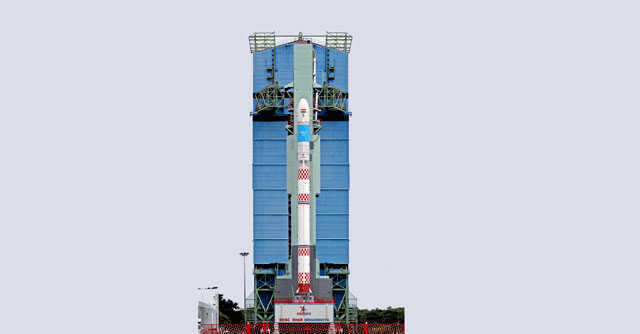
Isro confirms second SSLV launch for February 10


The second demonstrator launch mission of Indian Space Research Organisation (Isro)’s Small Satellite Launch Vehicle (SSLV) has been confirmed for February 10. The second launch comes after the first attempt to launch India’s central space agency’s first ‘small’ rocket launcher ended in partial failure on August 9, with the SSLV rocket failing to inject its satellite payload in their intended orbits.
In its second attempt, SSLV will carry three satellites to a circular orbit 450km above Earth, Isro confirmed in a statement. The three satellites in SSLV’s payload include Earth Observation Satellite (EOS)-07, which is an imaging, observation and reconnaissance satellite built and operated by Isro itself; Janus-1, a private satellite belonging to US-based satellite software developer Antaris; and AzaadiSAT — a student satellite built by 750 girl students, and supported by Space Kidz India.
To be sure, the first version of AzaadiSAT was a part of SSLV’s first demonstrator mission’s payload as well, but was lost as the rocket failed to deploy it correctly in orbit.

The SSLV is expected to take over from the Polar Satellite Launch Vehicle (PSLV), the present workhorse rocket for India. Among its key advantages include a smaller size, lower operating cost, and quicker assembly and preparation time — leading to Isro’s commercial arm, NewSpace India Limited (NSIL), pegging the SSLV as a ‘launch on demand’ rocket for India.
The SSLV is also expected to coexist alongside other small satellite launcher rockets built privately by India’s space startups, such as Skyroot Aerospace’s Vikram, and Agnikul Cosmos’ Agnibaan. While Vikram became the first private rocket to conduct India’s first private spaceflight on November 18, Agnibaan is expected to become India’s first private rocket that reaches orbit (Skyroot’s Vikram was a suborbital flight).
A successful demonstrator mission will bring Isro one step closer to proving the commercial viability of SSLV, and allow NSIL to plan commercial missions going forward.

Prior to the Ukraine-Russia war breaking out in February last year, the latter’s Roscosmos was among the world’s most notable commercial satellite launch services provider, with its Soyuz line of rockets. Following the conflict, US-based private firm SpaceX, owned by Twitter and Tesla chief Elon Musk, remains the most notable private satellite launch services operator, alongside France’s Ariane Space.
India, on this note, is looking to capture a larger share of global space launch and commercial services revenue, over the 2% market share that it holds today. A large part of this impetus is expected from the private sector, too — Union minister Jitendra Singh said in Parliament earlier today that the Indian National Space Promotion and Authorization Center (IN-SPACe) has received 136 applications from non-government entities (NGEs), showcasing the growth of the private space sector following its privatization two years ago.
